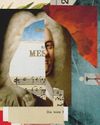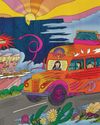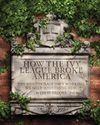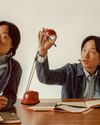
Until a couple of years ago, Lucy Calkins was, to many American teachers and parents, a minor deity. Thousands of U.S. schools used her curriculum, called Units of Study, to teach children to read and write. Two decades ago, her guiding principles-that children learn best when they love reading, and that teachers should try to inspire that love-became a centerpiece of the curriculum in New York City's public schools. Her approach spread through an institute she founded at Columbia University's Teachers College, and traveled further still via teaching materials from her publisher. Many teachers don't refer to Units of Study by name.
They simply say they are "teaching Lucy."
But now, at the age of 72, Calkins faces the destruction of everything she has worked for. A 2020 report by a nonprofit described Units of Study as "beautifully crafted" but "unlikely to lead to literacy success for all of America's public schoolchildren."
The criticism became impossible to ignore two years later, when the American Public Media podcast Sold a Story: How Teaching Kids to Read Went So Wrong accused Calkins of being one of the reasons so many American children struggle to read. (The National Assessment of Educational Progress-a test administered by the Department of Education-found in 2022 that roughly one-third of fourth and eighth graders are unable to read at the "basic" level for their age.) In Sold a Story, the reporter Emily Hanford argued that teachers had fallen for a single, unscientific idea-and that its persistence was holding back American literacy. The idea was that "beginning readers don't have to sound out words."
Diese Geschichte stammt aus der December 2024-Ausgabe von The Atlantic.
Starten Sie Ihre 7-tägige kostenlose Testversion von Magzter GOLD, um auf Tausende kuratierte Premium-Storys sowie über 8.000 Zeitschriften und Zeitungen zuzugreifen.
Bereits Abonnent ? Anmelden
Diese Geschichte stammt aus der December 2024-Ausgabe von The Atlantic.
Starten Sie Ihre 7-tägige kostenlose Testversion von Magzter GOLD, um auf Tausende kuratierte Premium-Storys sowie über 8.000 Zeitschriften und Zeitungen zuzugreifen.
Bereits Abonnent? Anmelden

JOE ROGAN IS THE MAINSTREAM MEDIA NOW
What happens when the outsiders seize the microphone?

MARAUDING NATION
In Trumps second term, the U.S. could become a global bully.

THE GENDER WAR IS HERE
What women learned in 2024

The Weirdest Hit in History
How Handel's Messiah became Western music's first classic

ONE FOR THE ROAD
What I ate growing up with the Grateful Dead

HOW THE IVY LEAGUE BROKE AMERICA
THE MERITOCRACY ISN'T WORKING. WE NEED SOMETHING NEW.

Against Type
How Jimmy O Yang became a main character

Catching the Carjackers - On the road with an elite police unit as it combats a crime wave
On August 7, 2022, Shantise Summers arrived home from a night out with friends around 2:40 a.m. As she walked from her car toward her apartment in Oxon Hill, a Maryland neighborhood just southeast of Washington, D.C., she heard footsteps behind her. She turned and saw two men in ski masks. One put a gun to her face; she could feel the metal pressing against her chin. He demanded her phone, wallet, keys, and Apple Watch. She quickly handed them over, and they drove off in her 2019 Honda Accord.

The Most Remote Place in the World - Point Nemo is Earth's official "middle of nowhere." A lot seems to be going on there.
It’s called the “longest-swim problem”: If you had to drop someone at the place in the ocean farthest from any speck of land—the remotest spot on Earth—where would that place be? The answer, proposed only a few decades ago, is a location in the South Pacific with the coordinates 48 52.5291ᤩS 123 23.5116ᤩW: the “oceanic point of inaccessibility,” to use the formal name. It doesn’t get many visitors. But one morning last year, I met several people who had just come from there.

The Elite College Students Who Can't Read Books - To read a book in college, it helps to have read a book in high school.
Nicholas Dames has taught Literature Humanities, Columbia University's required greatbooks course, since 1988. He loves the job, but it has changed. Over the past decade, students have become overwhelmed by the reading, College kids have never read everything they're assigned, of course, but this feels different. Dames's students now seem bewildered by the thought of finishing multiple books a semester. His colleagues have noticed the same problem.